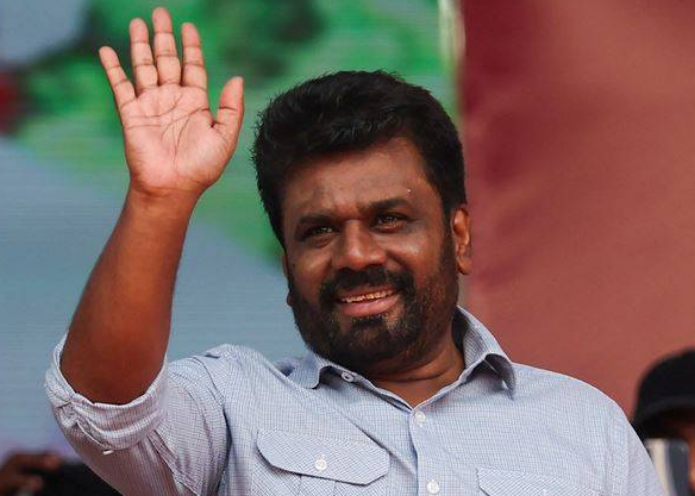Colombo (Web Desk): In a stunning political shift, Sri Lankan President Anura Kumara Dissanayake’s leftist coalition, the National People’s Power (NPP), secured a landslide victory in the country’s snap general election.
With 159 seats out of 225 in parliament, the NPP now holds a commanding two-thirds majority—one of the largest in Sri Lankan history.
The result, which also saw unexpected support from Tamil-majority regions in the north and east, reflects a significant change in the political landscape, signaling widespread approval for Dissanayake’s promise to address the country’s ongoing struggles with poverty and corruption.
Dissanayake’s coalition secured nearly 62% of the vote, a remarkable jump from the 42% he received in his successful presidential bid just a few months ago. This indicates growing support across Sri Lanka, including from minority groups who had been skeptical of his Marxist-leaning policies.
The victory also marks a decisive break from the political dominance of the Rajapaksa family, whose party, the Sri Lanka Podujana Peramuna (SLPP), was left with just three seats in parliament, down from 145 in the previous legislature.
This overwhelming win gives Dissanayake the mandate to push through his reform agenda, which includes tackling the country’s dire economic situation. Sri Lanka is still recovering from the financial meltdown of 2022, when a severe shortage of foreign currency led to a sovereign default, causing the economy to contract by 7.3% that year.
While the International Monetary Fund’s (IMF) $2.9 billion bailout program has provided some relief, the high cost of living remains a critical issue for many Sri Lankans, particularly the poor. Dissanayake has promised to reduce taxes and focus on local businesses, but his pledge to revisit the terms of the IMF deal has raised concerns among investors about the potential for delays in future funding.
Despite the election’s strong results, Dissanayake faces challenges in forming a fully functional government.
While his victory has secured him the power to implement his reforms, his coalition lacks experienced leaders with the governance and policy-making expertise necessary to tackle Sri Lanka’s complex problems. As an outsider to the entrenched political system, Dissanayake will need to quickly assemble a capable team to carry out his ambitious plans.
Another challenge facing Dissanayake’s government is his commitment to dismantling the executive presidency, a system he has criticized for concentrating too much power in the hands of the president.
While the two-thirds majority gives him the ability to begin this process, analysts suggest that addressing the country’s economic crisis will take precedence, and constitutional reforms are unlikely to be an immediate focus.
Overall, the election marks a pivotal moment in Sri Lanka’s recovery from the financial crisis, with Dissanayake’s coalition now holding the political leverage needed to move forward with much-needed economic reforms.
However, the road ahead will not be without hurdles, and the president will have to balance the high expectations of the public with the practical challenges of governance, especially as he navigates the complexities of the IMF bailout and works to stabilize the economy.


